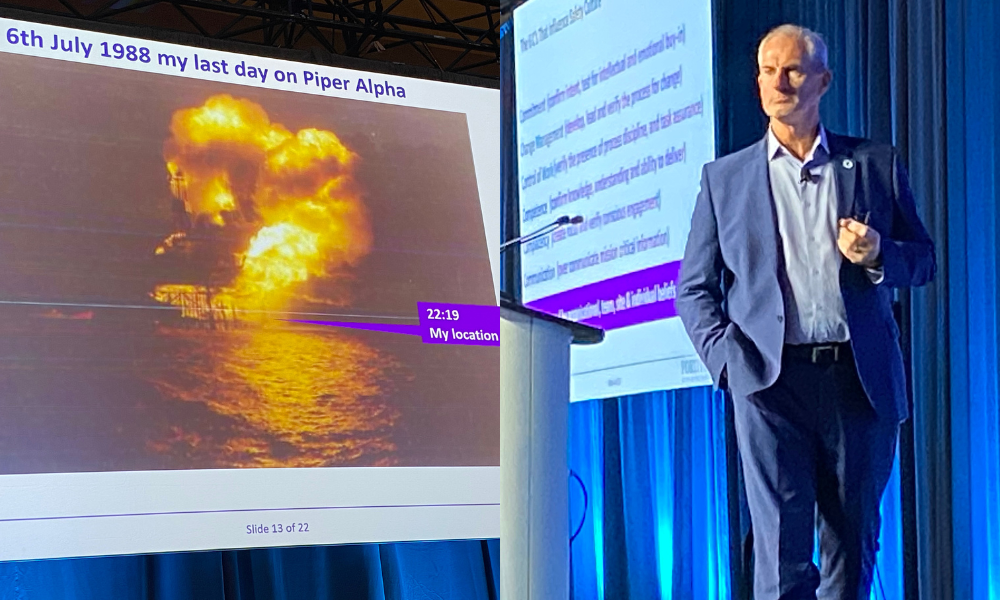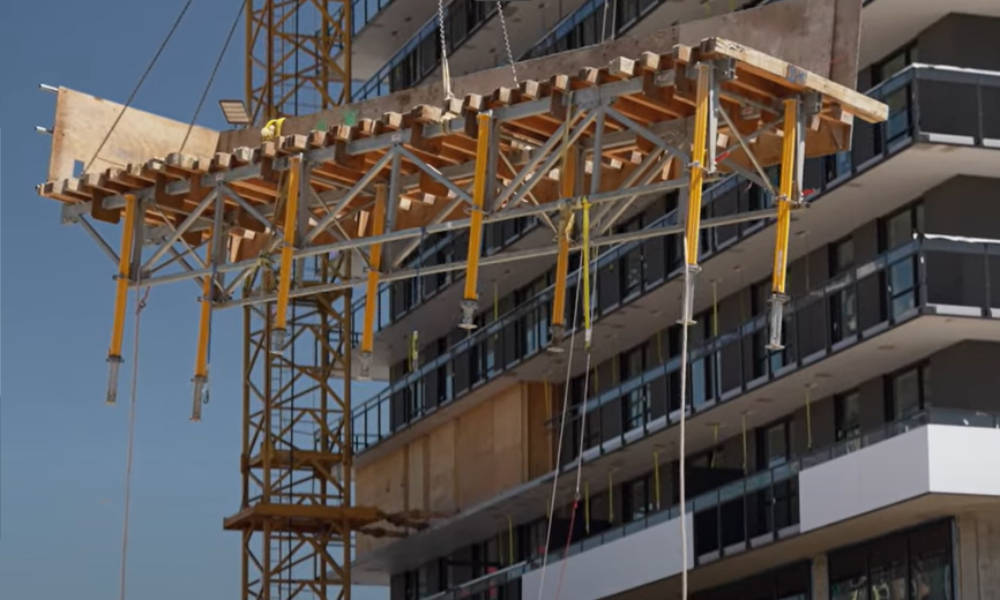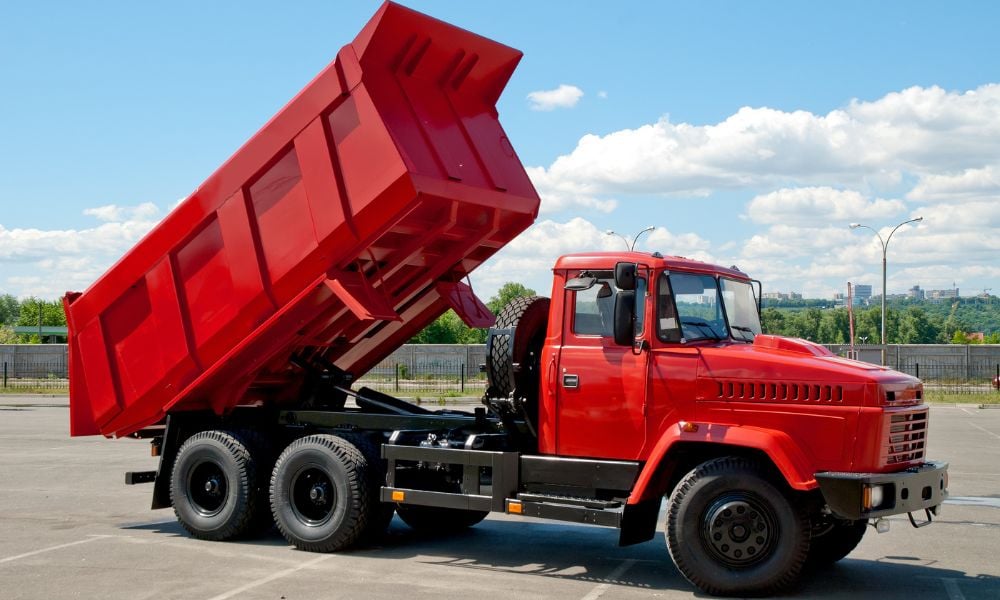'You are free to choose — but you are never free from the consequences of your choices' says survivor during speech at Energy Safety Conference

A hush falls over the room at the Energy Safety Conference as Steve Rae, a survivor of the Piper Alpha disaster, the deadliest offshore oil platform tragedy in history, steps to the podium.
“Had I not survived the sixth of July 1988, I would have never had such experiences,” Rae begins, referencing the majestic snow-capped mountains beyond the venue in Banff, Alberta. “It does get emotional for me, and I cherish every second I've been here.”
Rae speaks not only as a survivor, but as a man carrying the weight of 167 lives lost. On that summer night in 1988, the Piper Alpha offshore platform exploded in the North Sea, claiming the lives of workers who simply went to their jobs — and never returned.
To make that number real, Rae turns to the audience, asking everyone to stand up. The he asks everyone to sit down, except those with a marked sticker on their seat. Only a scattering of people remain standing.
“That’s how many survived,” he says. “Imagine if everyone sitting down now never came home. That’s what happened in just three and a half hours.”
A platform built in desperation
Rae shares a searing indictment of Occidental Petroleum, the company behind Piper Alpha. Driven by financial desperation after fruitless drilling, the company strikes oil in 1973 and rushes the platform into operation. By 1978, it becomes the world’s most productive platform, pushing 320,000 barrels a day. But rapid expansion leads to dangerous shortcuts.
“They had to convert it from oil to gas production — something it was never designed for,” Rae says. “And they chose a firewall instead of a blast wall. That was a conscious choice. A fatal one.”
Rae’s voice steadies as he describes a toxic culture where safety systems were neglected, workers were overloaded, and production came before protection.
“There were so many people on board doing so many different things,” he says. “No one knew what anyone else was doing. There was no proper safety induction. Even I didn’t ask the questions I should have. I chose to just go about my business.”
The six C’s and the night everything went wrong
Rae introduces what he calls the “Six C’s” — Commitment, Control of Work, Competence, Communication, Complacency, and Consequences — calling them recurring root causes in major industrial disasters.
“They weren’t just factors,” he says. “They were failures. And they were ours.”
On the day of the disaster, maintenance and high-risk operations overlap dangerously. A key safety valve is removed and not replaced. A backup pump kicks in — sending gas through an open pipe. The result is inevitable.
“It wasn’t much — just 36 kilograms of gas,” Rae says. “But it destroyed the entire platform.”
He walks the audience through the moments after the first explosion: dust, smoke, darkness. No alarms. No power. No plan. His drilling crew links arms to form a human chain and navigates blindly through a black cloud of burning embers.
They reach the accommodation block — meant to be the muster point — but the door is jammed open.
“I couldn’t go in,” Rae says. “I watched my crew disappear into the smoke. I never saw them again.”
With flames surrounding him, Rae chooses the only path left — into the sea. He and coworker named Vince descend the platform, and then another blast. Vince is gone. Rae eventually jumps 70 feet into the frigid North Sea, dodging a third explosion and swimming toward a rescue ship. When he finally climbs aboard, he’s greeted by an unbelievable sight: his friend Vince, alive.
“We cuddled like two kids,” Rae recalls, as the two men met naked in a shower, suffering from hypothermia, and trying to warm up. “Fifteen seconds. That’s all,” he jokes, prompting a moment of levity and laughter for the audience. “But it was everything.”
Beyond compliance: The cultural imperative
Today, Rae co-directs Fortitude: Action Beyond Compliance, and chairs the Pound for Piper Memorial Trust. He challenges safety professionals not to rely on paperwork or protocols, but to transform culture — starting with themselves.
“This isn’t a framework to replace your systems,” he explains. “It’s a mindset. You are free to choose — but you are never free from the consequences of your choices.”
Rae ends with a plea — not as a keynote speaker, but as a man who carries the memory of 167 colleagues.
“Your choices can affect the livelihoods and lives of others,” he says. “If you remember that, you will make them differently.”
Rae doesn’t ask for sympathy. He asks for courage — the kind it takes to speak up, to do more than what’s required, and to never accept "good enough" when lives are on the line.





